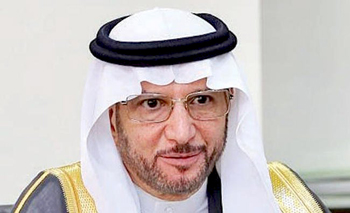Jeddah, May 6: Yousef bin Ahmed Al-Othaimeen, secretary-general of the Organization of Islamic Cooperation (OIC), has called for more awareness of the increasing dangers of Islamophobia, through the dissemination of principles of peace and harmony between communities.
 He was speaking at the recently held 4th World Forum on Intercultural Dialogue in Baku, Azerbaijan.
He was speaking at the recently held 4th World Forum on Intercultural Dialogue in Baku, Azerbaijan.
He confirmed the continuous commitment of the OIC to support innovative ideas to instill the values of tolerance between religions, cultures and civilizations, the commitment undertaken in the framework of a 10-year work program to the year 2025.
“It lays upon all of us the responsibility to promote the culture of tolerance, peaceful coexistence and mutual understanding with continuous work to develop new ways to promote intercultural dialogue based on the principle of accepting others and mutual respect,” Al-Othaimeen said.
He noted that selecting “promoting intercultural dialogue, new horizons for human security, peace and sustainable development,” as the theme for this year’s session of the forum, reinforces the conviction that culture can play a key role in strengthening the global framework for development.
The secretary general pointed out that the “Istanbul Path” initiative, launched by the OIC within its plan to contribute to the implementation of UN Resolution 16/18 for human rights, constitutes a positive step in the efforts against all forms of extremism, hatred and racial discrimination.
It aims to build a common path to address these issues through a culture of dialogue, mutual respect and understanding.
The forum was organized by an initiative of Ilham Aliyev, president of the Republic of Azerbaijan, in partnership with UNESCO, UN Alliance of Civilizations, UN World Tourism Organization, Food and Agriculture Organization of the UN, the Islamic Educational, Scientific and Cultural Organization and the Council of Europe.





Comments
Add new comment